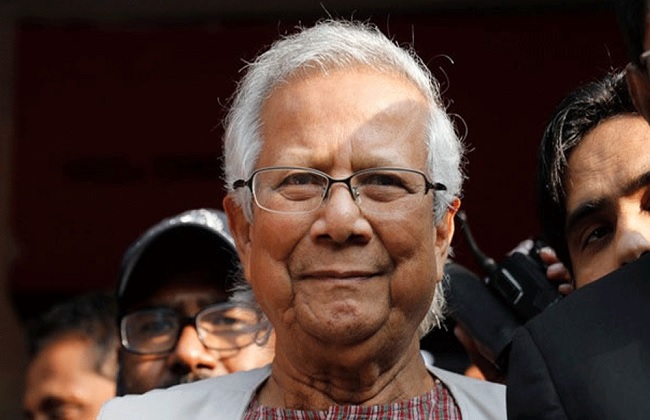
Dr Muhammad Yunus, the chief adviser in Bangladesh’s interim government, has said his administration will pursue with India ways to resolve the differences over the long-pending Teesta water-sharing treaty, as delaying it benefits neither nation.
In an interview with the Press Trust of India at his official residence in Dhaka, published on Friday, Yunus said the matter needed to be settled in line with international norms, underscoring the rights of lower riparian countries, like Bangladesh, to fair water distribution.
Even if Bangladesh was not fully satisfied, knowing how much water it would receive was better than endless uncertainty, said the Nobel laureate.
Replying to a query about whether the interim government would push for resolving the issues over the Teesta water-sharing treaty at the earliest, he said the new regime would pursue it. “Push is a big word… We will pursue it. But we have to sit together and resolve it.”
A water-sharing deal between the two countries was nearly finalized in 2011 during then-Indian prime minister Manmohan Singh’s visit to Dhaka. However, the agreement was stalled after West Bengal Chief Minister Mamata Banerjee declined to endorse it, citing water shortages in her state.
Yunus reiterated that Bangladesh’s rights as a lower riparian country must be respected and that the issue should be addressed through international frameworks.
Speaking about floods in Bangladesh and some reports from Dhaka blaming India for the flooding, Yunus said until the treaty was signed, a humanitarian approach could be adopted to deal with such crises.
“We can work on this together on humanitarian grounds and resolve this, as this will ease the suffering of the masses. Such humanitarian steps would really help,” he said.
Monsoon floods have caused significant devastation in Bangladesh, with millions affected and dozens of deaths reported. Indian officials, meanwhile, have refuted claims that the recent floods in Bangladesh were caused by the release of water from dams in India, calling such reports factually incorrect.
Yunus also criticized the killings of Bangladeshi citizens along the border, describing it as “callousness.”
Shooting people was not a solution, he said, adding that there were legal ways to deal with this.
“There has to be a ground mechanism and legal procedure to handle it. This is a one-sided thing. No one is crossing the border to capture your country; those who are being killed by shooting are just couriers. This is callousness. This has to stop.”
